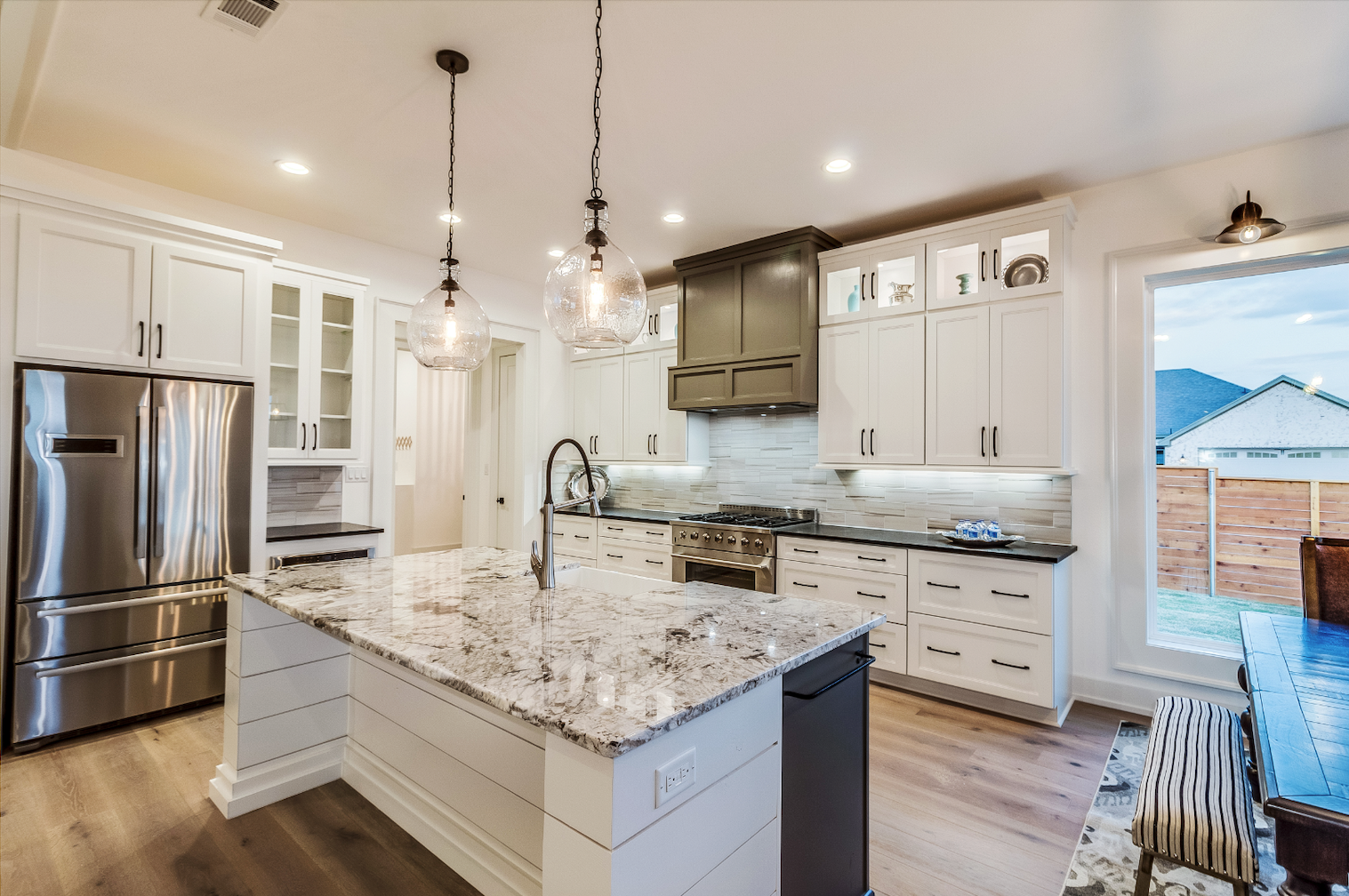Choosing Your Countertop Stone
When it comes to choosing countertops for your kitchen or bathroom, granite has long been a favorite. As a natural stone, it brings a unique elegance to any space. However, with the rising popularity of engineered stones, many homeowners find themselves at a crossroads. In this post, we will delve into the pros and cons of granite countertops, helping you make an informed decision.
Pros of Granite Countertops:
- Unique Beauty:
- Each granite slab is one-of-a-kind, with unique colors and patterns, adding an unparalleled aesthetic to your home.
- Durability:
- Granite is known for its hardness and resistance to scratches. It stands up well to everyday wear and tear, making it a long-lasting choice.
- Heat Resistance:
- One of granite’s standout features is its ability to resist heat, making it ideal for kitchens where hot pots and pans are common.
- Adds Value to Your Home:
- Granite countertops are a sought-after feature in real estate, potentially increasing your home’s market value.
- Low Radiation Risk:
- While all rocks emit radiation, granite’s levels are extremely low, posing no significant health risk.
- Eco-Friendly:
- As a natural stone, it doesn’t require the use of plastics or other potentially harmful materials in its production.
Cons of Granite Countertops:
- Porous Surface:
- Granite can absorb liquids because of its porosity. Spills must be wiped up quickly, and the stone needs to be sealed periodically to prevent staining.
- Maintenance:
- Regular sealing is required to maintain its luster and prevent staining, adding to its maintenance routine.
- Weight:
- Granite is heavy, requiring sturdy cabinet boxes to support its weight, which could add to installation costs.
- Seams Are Visible:
- For larger countertops, seams might be visible, which could disrupt the flow of the stone’s pattern.
- Cost:
- Granite can be more expensive than some engineered stones, though prices vary depending on the rarity of the stone.
- Limited Color Range:
- The color and pattern depend on the natural formation of the stone, offering less predictability and fewer options compared to engineered stones.
Granite vs. Engineered Stone:
When deciding between granite and engineered stone (such as quartz), consider the following:
- Aesthetics: Granite offers a unique and natural look, while engineered stone provides more uniformity in appearance.
- Durability: Both are durable, but granite requires more maintenance.
- Cost: Prices can vary, but engineered stones often offer a more budget-friendly alternative.
- Environmental Impact: Granite has a lower environmental impact in production, but engineered stones often use a high percentage of recycled materials.
Making the Right Choice:
Choosing between granite and engineered stone will depend on your lifestyle, budget, and aesthetic preferences. If you love the idea of having a unique, natural surface in your home and don’t mind the maintenance, granite could be the perfect choice. On the other hand, if you prefer more uniformity in color and pattern and a lower maintenance option, engineered stone might be more suitable.
Conclusion:
Granite countertops offer timeless beauty and durability, making them a popular choice for many homeowners. However, the decision to choose granite over engineered stone should be based on individual preferences, lifestyle, and practical considerations. We hope this guide helps you in making an informed decision that will bring lasting satisfaction in your home renovation journey.


